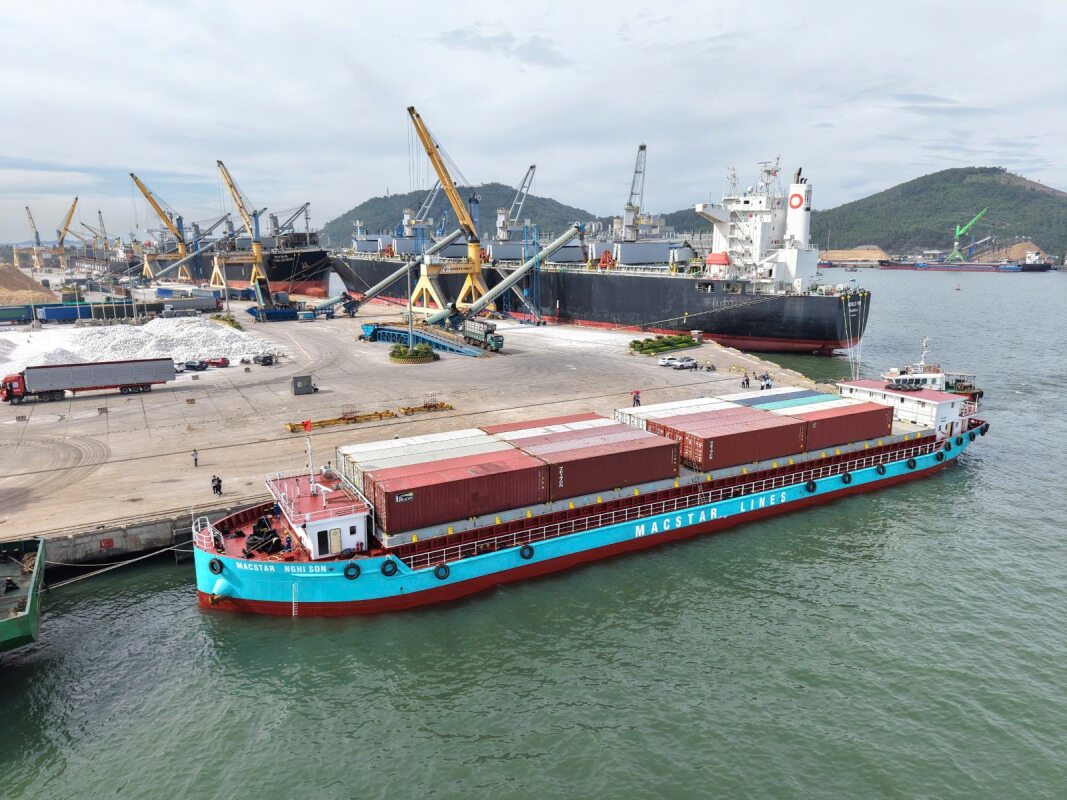Macstar’s Bold Blueprint for a Greener Logistics Future
As Vietnam strives toward its Net-Zero goal by 2050 and global supply chains increasingly tighten environmental standards, Macstar Group has emerged as a model of green transition in the domestic logistics sector.

With innovative thinking and concrete actions—from investing in environmentally friendly fleets to participating in the carbon credit market—the company is not only a leader in inland waterway container transport in northern Vietnam but also a pioneer in building a sustainable logistics ecosystem. In an interview, Mr. Cap Trong Cuong, CEO of Macstar, shared key strategies, expectations for APEC cooperation, and his vision of positioning Vietnam’s green transport alongside regional standards.
Macstar is known as a pioneer in inland waterway container transport in northern Vietnam. Can you share your strategic vision for building a green supply chain and achieving long-term emissions reductions?
Logistics is a global trend—an indispensable condition for integration that is irreversible. With sustainable development objectives as our guiding principle, MACSTAR is realigning its business direction to build a green supply chain and minimize greenhouse gas emissions. We are expanding coastal shipping routes and combining them with inland waterway transport—a mode of transport with very low emissions—to replace road transport, which is far more polluting. This diversification helps us provide high-quality logistics services that meet the strict demands of high-end markets like Europe, the U.S., and Japan.
Currently, Macstar operates specialized fleets connecting Hai Phong with Nam Dinh, Ninh Binh, and Thanh Hoa via coastal and inland routes. This solution relieves road traffic congestion, conserves fuel, and lowers logistics costs.
Operational data shows these routes reduce CO₂ emissions by 70–83% compared to traditional road transport. Our newly built vessels equipped with next-gen engines have significantly reduced fuel consumption and emissions. We are gradually transitioning to clean energy sources such as LNG, electricity, and hydrogen while integrating digital systems for real-time monitoring of fuel usage and emissions.
How do you evaluate the role of technology and digitalization in improving efficiency and reducing CO₂ emissions at Macstar?
We’ve invested in advanced vessels like Macstar Ninh Binh and Macstar Nghi Son (180 TEUs, SI/SB class), featuring new hull designs that reduce water resistance, increase cargo space, and optimize fuel use. These ships are equipped with modern exhaust treatment systems and CO₂ emission sensors to ensure environmentally friendly operations.
Additionally, we’ve implemented intelligent operational processes, fleet management software, and full digitalization of port declarations and cargo handling. As a result, our cargo handling efficiency has increased by 40–50%, vessel waiting times have dropped significantly, and transport routes are optimized to reduce emissions per ton-kilometer.

What strategy is Macstar using to enter the carbon credit market and offset remaining emissions?
We are working with the Vietnam Forestry Institute (as consultants) to pilot a 500-hectare reforestation and rehabilitation project in Bac Kan to generate carbon credits, and we’re forming partnerships with high-potential agroforestry regions. This initiative prepares us for carbon credit trading and supports the realization of our Net-Zero targets.
However, for transport businesses to effectively participate in this market, clear legal frameworks, green finance mechanisms, and specialized environmental tech training are essential. We hope to see transparent policies that unlock the full potential of both domestic and international carbon credit markets.
What international cooperation has Macstar pursued in green transport, and what are your expectations for the ABAC III – APEC 2025 meeting?
We actively engage with international partners and APEC forums to exchange green technologies, adopt high-standard operational practices, and attract investment into sustainable logistics infrastructure.
The ABAC III – APEC 2025 meeting presents a vital opportunity for the business community to foster meaningful cooperation, jointly develop green transport standards, and promote the carbon credit market. It’s a chance to form strategic regional alliances that drive carbon neutrality and enhance global competitiveness for Vietnamese enterprises.
How does Macstar prioritize human resource development, and what message would you like to convey to the APEC business community?
High-quality human resources are a cornerstone of corporate development in the digital age. We regularly send staff to attend specialized training and study tours both domestically and abroad. Frequent re-training sessions ensure mastery of operational procedures, digital systems, and emission management. We also engage in community outreach to raise environmental awareness and promote sustainable development.
With favorable geography, improving infrastructure, and increasingly clear policies, Vietnam offers great opportunities for green logistics investment. Macstar is eager to partner with the APEC business community to build a green supply chain integrated with carbon credits, contributing to Net-Zero goals and elevating Vietnam’s position in the global logistics landscape.
Thank you!








